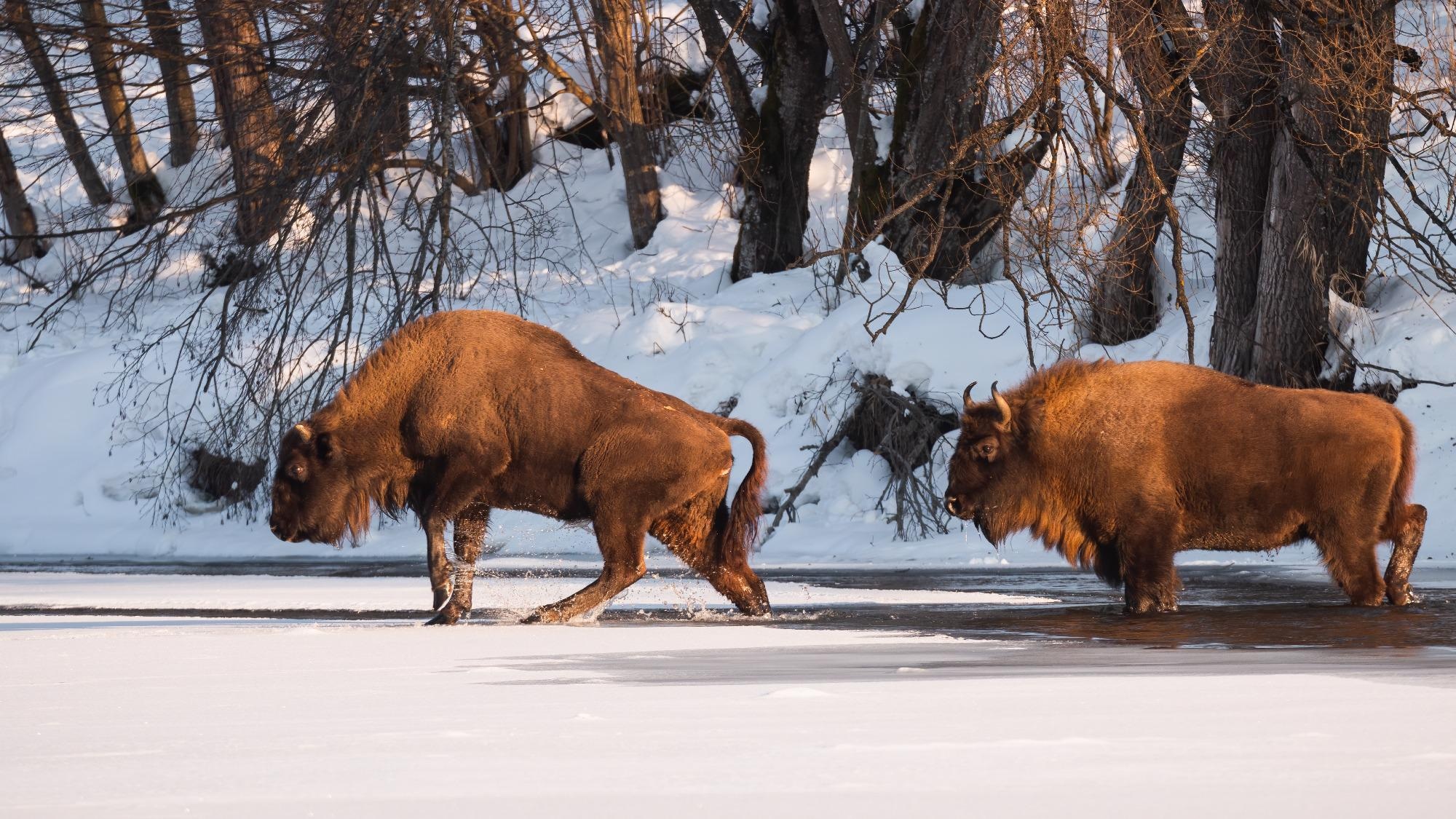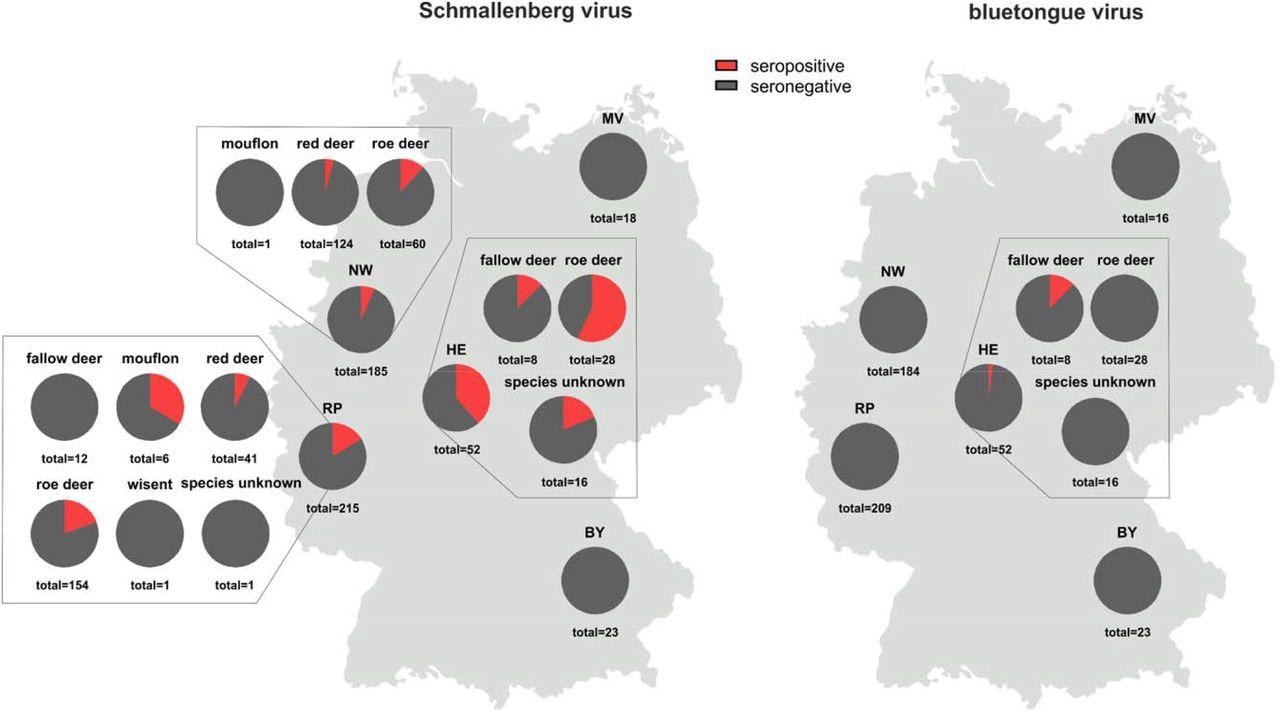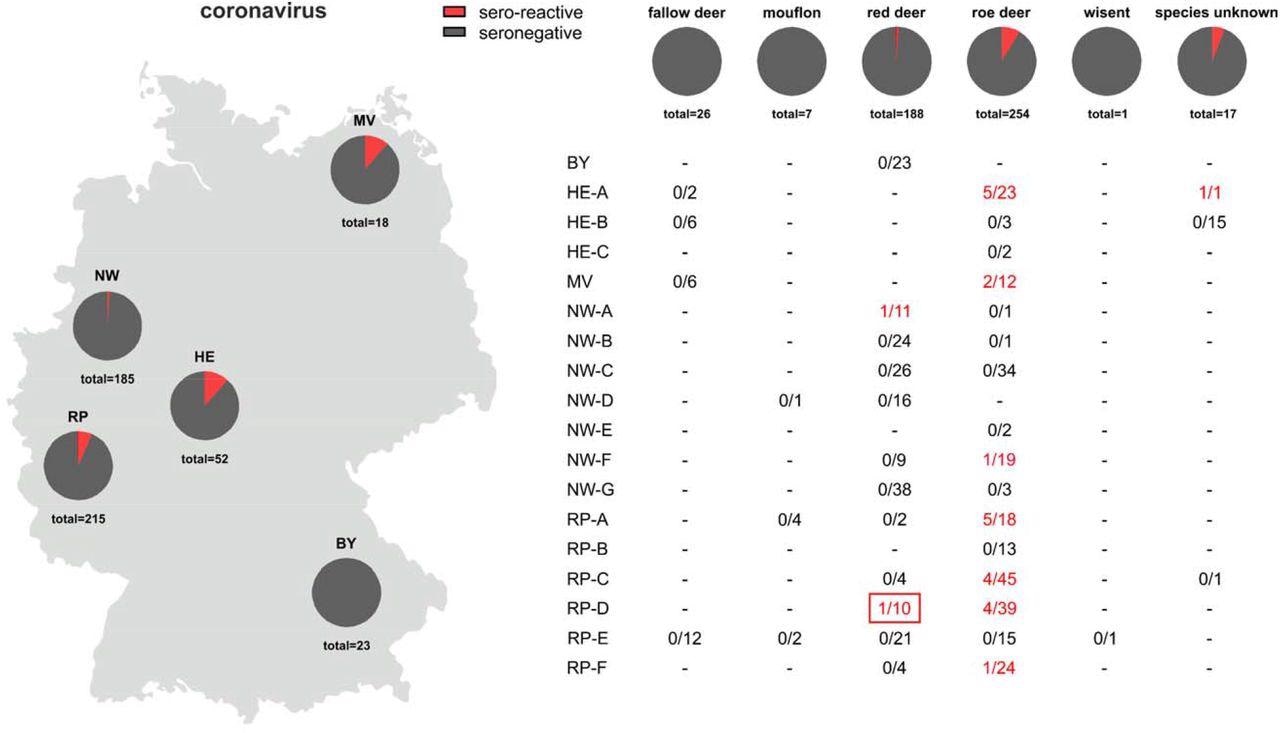No seroprevalence observed against SARS-CoV-2 in wild ruminants in Germany
A team of scientists from Germany has recently conducted a serological screening on wild animals to assess seroprevalence against severe acute respiratory syndrome coronavirus 2 (SARS-CoV-2) and other pathogenic viruses related to domestic ruminants. The findings reveal that wild animals are not susceptible to SARS-CoV-2 infection. High seropositivity has only been observed against the Schmallenberg virus. The study is currently available on the bioRxiv* preprint server while awaiting peer review.

Study: Serological screening in wild ruminants in Germany, 2021/22: No evidence of SARS-CoV-2, bluetongue virus or pestivirus spread but high seroprevalences against Schmallenberg virus. Image Credit: WildMedia / Shutterstock
Many infectious pathogens relevant to public health can infect wild animals, turning them into reservoirs of a plethora of viruses and bacteria. As a result, these animals possess a constant risk of zoonotic transmission of pathogens to humans.
In central Europe, the majority of wild ruminants are susceptible to two insect-borne viruses, namely bluetongue virus and Schmallenberg virus. While infection with the Schmallenberg virus is known to cause fever, diarrhea, reduced milk production, and reproductive defects in domestic ruminants, the bluetongue virus primarily causes subclinical infections. However, vascular injuries from bluetongue virus infection can induce systemic hemorrhagic fever, which has a high mortality rate.
Besides insect-borne viruses, there are many pathogens that can infect both wild and domestic animals via direct contact. These pathogens include the bovine viral diarrhea virus and border disease virus.
In the ongoing coronavirus disease 2019 (COVID-19) pandemic, many cases of natural SARS-CoV-2 infection in American mink, ferrets, felines, canines, and primates from human exposure have been identified. Infection of SARS-CoV-2 in white-tailed deer has also been detected in North America. This raises a concern that these animals may potentially act as reservoirs capable of reintroducing the virus to humans.
In the current study, the scientists have investigated the seroprevalence against SARS-CoV-2 infection in European wild ruminants. In addition, they have assessed seropositivity against four viruses of veterinary relevance, including bluetongue virus, Schmallenberg virus, bovine viral diarrhea virus, and border disease virus.
Study design
A total of 493 samples collected from wild ruminants during 2021 – 2022 in Germany were included for the serological analysis. The study animals included fallow deer, red deer, roe deer, mouflon, and wisent (European bison). For SARS-CoV-2 seropositivity analysis, additional 307 samples collected between 2017 and 2020 were included.

Proportion of wild ruminant samples that tested positive (red) for antibodies against the Culicoides-transmitted viruses Schmallenberg virus (left) and bluetongue virus (right). BY – Bavaria, HE – Hesse, MV – Mecklenburg-Western Pomerania, NW – North Rhine-Westphalia, RP – Rhineland-Palatinate
Serology of veterinary viruses
About 13% of samples collected between September 2021 and January 2022 showed seropositivity against the Schmallenberg virus. Except wisent, individual animals from every studied species were affected by the Schmallenberg virus.
In contrast, all samples except one showed seronegativity against the bluetongue virus. The only sample that tested positive against bluetongue virus was collected from a fallow deer of unknown age. Regarding bovine viral diarrhea virus and border disease virus, all samples showed seronegativity.

Serology of coronaviruses
About 5% of samples collected during 2021 – 2022 tested positive for anti-SARS-CoV-2 spike receptor-binding domain (RBD) antibodies. To further confirm the seropositivity of samples, virus neutralization test was conducted using replicating SARS-CoV-2. In this confirmatory test, none of the samples showed seropositivity against SARS-CoV-2.
The analysis of samples collected before and during the COVID-19 pandemic revealed that about 6.5% of samples have antibodies against the SARS-CoV-2 spike RBD. However, the seropositivity of these samples could not be confirmed by virus neutralization test.
Further analysis of SARS-CoV-2 seropositive samples collected before and during the pandemic revealed that about 90% of the samples have antibodies against the spike RBD of SARS-CoV-1, the causative pathogen of the 2002–2004 SARS outbreak. Both SARS-CoV-1 and SARS-CoV-2 belong to the subgenus Sarbecovirus of the beta-coronaviruses.
Overall, these findings highlight the presence of at least one previously unknown coronavirus in the wildlife population that is closely related to viruses of the Sarbecovirus subgenus. The antibodies developed against this unknown coronavirus have shown cross-reactivity against both SARS-CoV-1 and SARS-CoV-2.
Study significance
The serological screening conducted in the study reveals that wild ruminants in Germany are not susceptible to SARS-CoV-2 infection. However, these animals have shown high seroprevalence against the Schmallenberg virus.
The seropositivity against SARS-CoV-2 observed in some animals could be due to another previously unknown coronavirus belonging to the subgenus Sarbecovirus of beta-coronaviruses.
*Important notice
bioRxiv publishes preliminary scientific reports that are not peer-reviewed and, therefore, should not be regarded as conclusive, guide clinical practice/health-related behavior, or treated as established information.
- Wernike K. 2022. Serological screening in wild ruminants in Germany, 2021/22: No evidence of SARS-CoV-2, bluetongue virus or pestivirus spread but high seroprevalences against Schmallenberg virus. BioRxiv. https://www.biorxiv.org/content/10.1101/2022.02.21.481262v1
Posted in: Medical Science News | Medical Research News | Disease/Infection News
Tags: Antibodies, Bacteria, Coronavirus, Coronavirus Disease COVID-19, covid-19, Diarrhea, Fever, Hemorrhagic Fever, Mortality, Pandemic, Pathogen, Public Health, Receptor, Respiratory, SARS, SARS-CoV-2, Serology, Severe Acute Respiratory, Severe Acute Respiratory Syndrome, Syndrome, Vascular, Veterinary, Virus

Written by
Dr. Sanchari Sinha Dutta
Dr. Sanchari Sinha Dutta is a science communicator who believes in spreading the power of science in every corner of the world. She has a Bachelor of Science (B.Sc.) degree and a Master's of Science (M.Sc.) in biology and human physiology. Following her Master's degree, Sanchari went on to study a Ph.D. in human physiology. She has authored more than 10 original research articles, all of which have been published in world renowned international journals.
Source: Read Full Article
